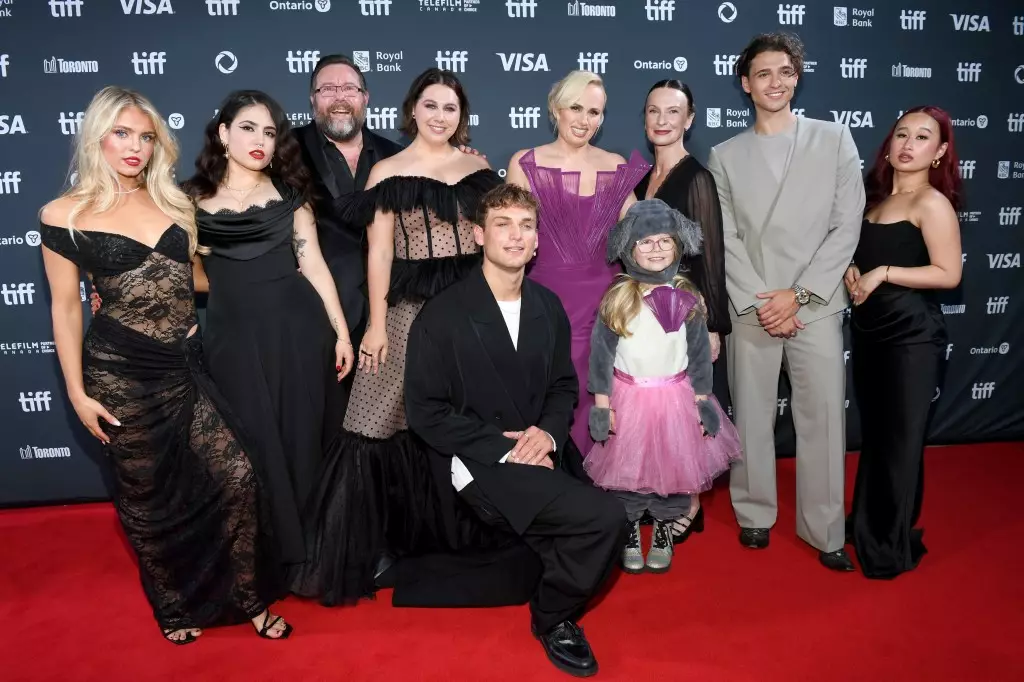The entertainment industry is no stranger to conflict, but the recent legal skirmish involving actress and director Rebel Wilson has reached a level of intensity that warrants close examination. After significant speculation and weeks of rumors, Wilson has officially filed a counter-complaint against producers connected to her musical drama, *The Deb*. This legal move is rooted not just in personal grievances but also in a broader narrative about accountability in Hollywood, particularly regarding issues of power dynamics, misconduct, and the treatment of female creators.
The drama erupted shortly after the world premiere of *The Deb* concluded at the Toronto Film Festival. Wilson, whose multi-hyphenate role includes directing and starring in the film, expressed dissatisfaction with the producers, specifically targeting Amanda Ghost and others in her public statements. At the heart of Wilson’s allegations are claims of misconduct, financial mismanagement, and an overarching culture of intimidation. Her counter-complaint, filed on September 26, is a bold declaration against what she characterizes as a long history of reprehensible behavior exhibited by the production team.
Wilson’s lawsuit emphasizes that these producers operated under the misconception that they could engage in unethical conduct without facing consequences. Characterizing their actions as a “troubling pattern of egregious and illicit behaviors,” she alleges theft, bullying, and even sexual misconduct. Such serious accusations speak to widespread issues in the industry that many have experienced but few have had the courage to challenge, prompting discussions about the need for systemic change in Hollywood.
The Legal Landscape
This clash represents a tit-for-tat legal battle that began earlier in the summer when Wilson took to social media to express her discontent with the film’s producers, claiming they were acting irresponsibly with *The Deb’s* finances and had engaged in “inappropriate behavior” toward the project’s cast, particularly leading actress Charlotte MacInnes. When these allegations reached the public sphere, the producers responded with their own lawsuit, labeling Wilson’s claims as “false” and “defamatory.” Wangling through a series of legal maneuvers, the ensuing defamation claim only escalated matters, prompting Wilson to engage attorney Bryan Freedman, known for his aggressive legal strategies.
Wilson’s counter-complaint not only serves as a legal rebuttal but also a narrative re-asserting her position as a creator and advocate. Freedman stated that their aim was to spotlight ongoing misconduct within the production team and the industry at large. The claim is reinforced by testimonies from other individuals who have also encountered Ghost’s management style—further underscoring that Wilson is not acting alone in confronting perceived injustices in Hollywood.
Wilson’s decision to sue her producers does not merely center on a personal vendetta; it serves as a rallying cry for other voices in the industry that have been subdued by similar oppressive tactics. By encouraging others to come forward and share their experiences, Wilson aims to illuminate the broader context of abuse and exploitation within film production. Her complaint is described as the “tip of the iceberg,” suggesting that the scandal may unveil deeper issues that have been carefully concealed in silence.
The landscape of entertainment is continually evolving, and Wilson’s actions are emblematic of a shift toward calling out unethical behavior. She states her intention to fight not only for her vision of *The Deb*, but also for all those who have suffered in silence. This transformative approach to tackling systemic issues reflects an empowering trend in Hollywood, where female creators are increasingly demanding transparency and accountability.
Rebel Wilson’s ongoing legal battle against her former producers of *The Deb* showcases a complex interaction between personal ambition, artistic integrity, and legal recourse within an often-unforgiving industry. The verdict of this case remains to be seen, but the implications are already resonating within Hollywood. As Wilson continues her fight, she is undoubtedly paving the way for discussions about ethics, equity, and the treatment of filmmakers—especially women—within a system that has historically favored a select few.
In the end, her case may not only resolve her immediate conflicts but help redefine the landscape of power dynamics in the entertainment industry. As this legal saga unfolds, industry stakeholders should be prepared for a deeper examination of their practices and the potential for accountability to process not just grievances, but calls for a more equitable industry for all.

